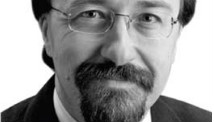NEW YORK (Reuters) - If Wall Street needs to climb a wall of worry, it will have plenty of opportunity next week.
Major U.S. stock indexes will make another attempt at reaching all-time records, but the fitful pace that has dominated trading is likely to continue. Next Friday's unemployment report and the hefty spending cuts that look like they about to take effect will be at the forefront.
The importance of whether equities can reach and sustain those highs is more than Wall Street's usual fixation on numbers with psychological significance. Breaking through to uncharted territory is seen as a test of investors' faith in the rally.
"It's very significant," said Bucky Hellwig, senior vice president at BB&T Wealth Management in Birmingham, Alabama.
"The thinking is, there's just not enough there for an extended bull run," he said. "If we do break through (record highs), then maybe the charts and price action are telling us there's something better ahead."
Flare-ups in the euro zone's sovereign debt crisis and next Friday's report on the U.S. labor market could jostle the market, though U.S. job indicators have generally been trending in a positive direction.
Small- and mid-cap stocks hit lifetime highs in February. Now the Dow Jones industrial average <.dji> and the S&P 500 <.spx> are racing each other to the top. The Dow, made up of 30 stocks, is about 75 points - less than 1 percent - away from its record close of 14,164.53, which it hit on October 9, 2007. The broader S&P is still 3 percent away from its closing high of 1,565.15, also reached on October 9, 2007.
The advantage may be in the Dow's court. So far in 2013, it has gained 7.5 percent, beating the S&P 500 by about 1 percent.
THE RALLY AND THE REALITY CHECK
The Dow's relative strength owes much to its unique make-up and calculation, as well as to investors' recent preference for buying value stocks likely to generate steady reliable gains, rather than growth stocks.
But the more defensive stance illustrates how stock buyers are getting concerned about this year's rally. While investors don't want to miss out on gains, they're picking up companies that are less likely to decline as much as high-flying names - if a market correction comes.
The Russell Value Index <.rav> is up 7.6 percent for the year so far, outpacing the Russell Growth Index's <.rag> 5.7 percent rise. Within the realm of the S&P 500, the consumer staples sector led the market in February, gaining 3.1 percent.
There is some concern that growth-oriented names are being eclipsed by defensive bets, said Ryan Detrick, senior technical strategist at Schaeffer's Investment Research in Cincinnati.
"This isn't a be-all and end-all sell signal by any means, but we would feel much more comfortable if some of the more aggressive areas, like technology and small caps, would start to gain some leadership here," Detrick said.
Signs that investors are becoming concerned about the rally's pace is evident in the options market, where the ratio of put activity to call activity has recently shifted in favor of puts, which represent expectations for a stock to fall.
"We are seeing some put hedging in the financials, building up for the past month," said Henry Schwartz, president of options analytics firm Trade Alert in New York.
The put-to-call ratio representing an aggregate of about 562 financial stocks is 1:1, when normally, calls should be outnumbering puts.
Investors have no shortage of reasons to crave the relative safety of blue chips and defensive stocks. Although markets have mostly looked past uncertainty over Washington's plans to cut the deficit, fiscal policy negotiations still pose a risk to equities.
The $85 billion in spending cuts set to begin on Friday is expected to slow economic growth this year if policymakers do not reach a new deal. Markets so far have held firm despite the wrangling in Washington, but tangible economic effects could pinch stock prices going forward.
The International Monetary Fund warned that full implementation of the cuts would probably take at least 0.5 percentage point off U.S. growth this year.
EASY MONEY AND TEPID HIRING
Investors will also take in a round of economic data at a time when concerns are percolating that the market is being pushed up less by fundamentals and more by loose monetary policy around the world.
The main economic event will be Friday's non-farm payrolls report for February. The U.S. economy is expected to have added 160,000 jobs last month, only a tad higher than in January, in a sign the labor market is healing at a slow pace. The U.S. unemployment rate is forecast to hold steady at 7.9 percent.
While lackluster data has been a catalyst in the past for stock market gains as investors bet it would ensure continued stimulus from the Federal Reserve, that sentiment may be wearing thin.
Markets stumbled last week following worries that the Fed might wind down its quantitative easing program sooner than expected.
"It shows the underpinning of the market is being driven at this point by monetary policy," Hellwig said.
With investors questioning what is behind the rally, it will make a run to record highs even more significant, Hellwig added.
"There's smart people that are in the bull camp and the bear camp and the muddle-through camp," Hellwig said. "The fact that you can statistically, using historical evidence, make a case for going higher, lower, or staying the same makes this number very important this time around."
(Wall St Week Ahead runs every Friday. Comments or questions on this column can be emailed to: leah.schnurr(at)thomsonreuters.com)
(Reporting by Leah Schnurr; Additional reporting by Doris Frankel in Chicago; Editing by Jan Paschal)


